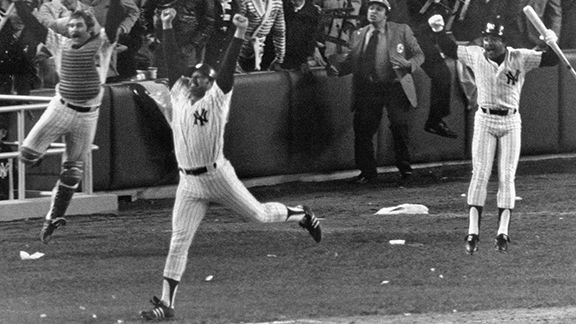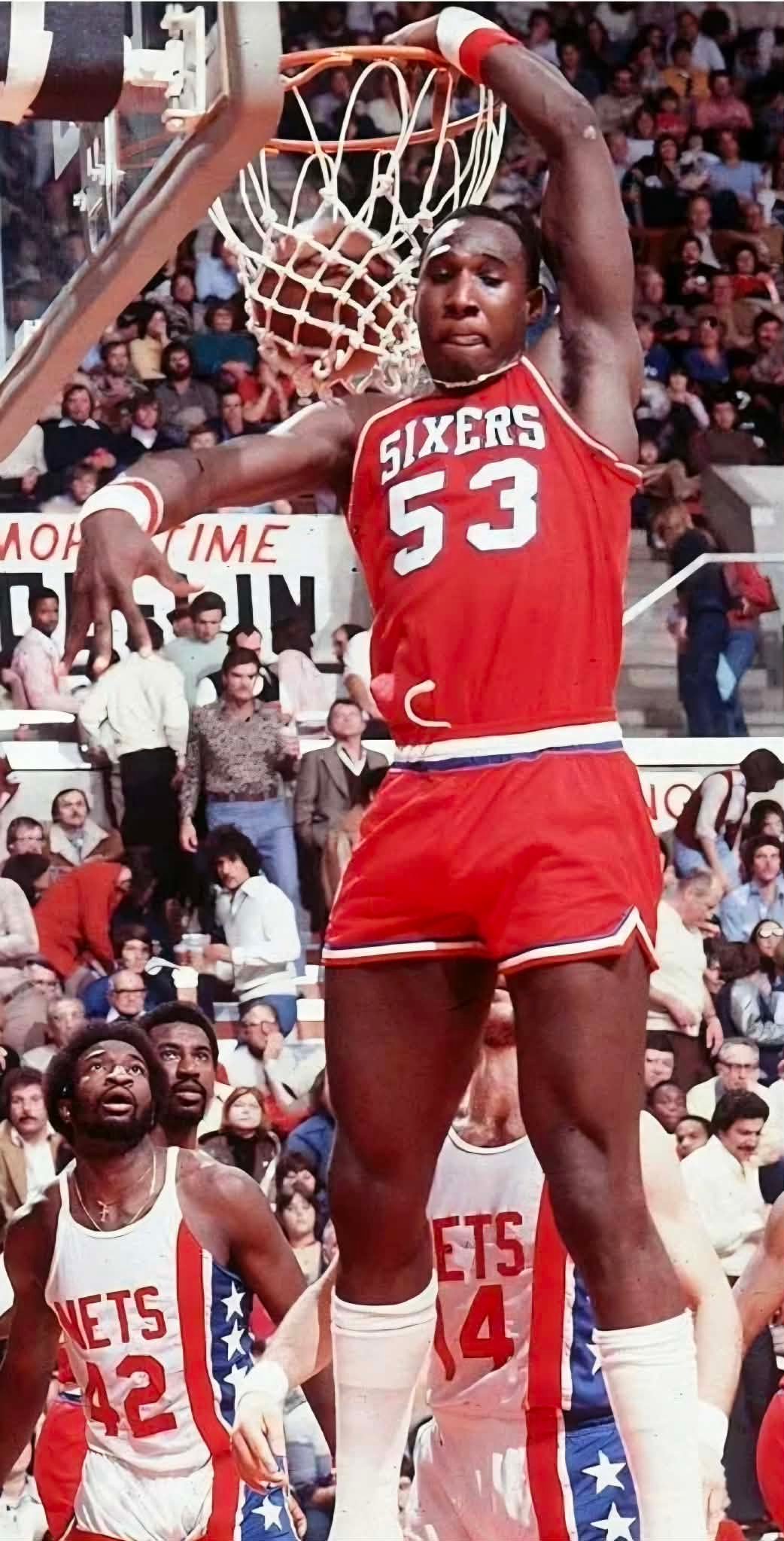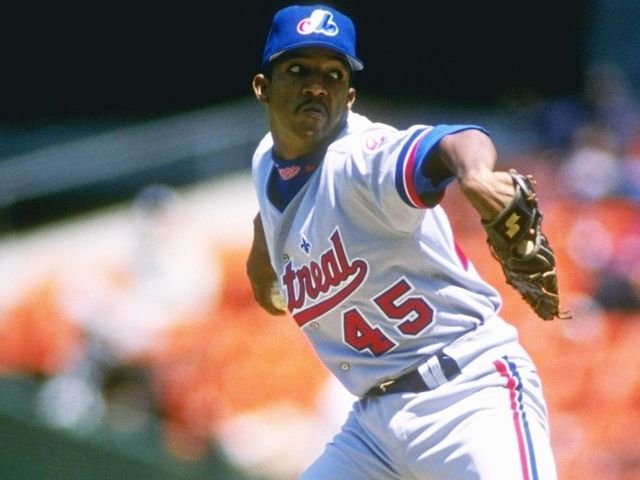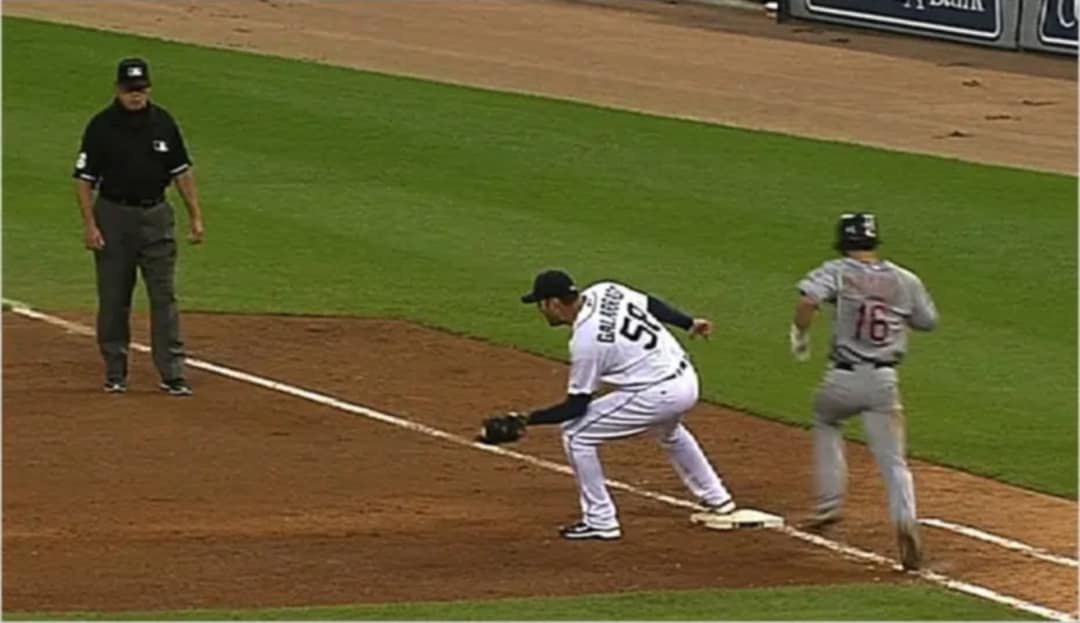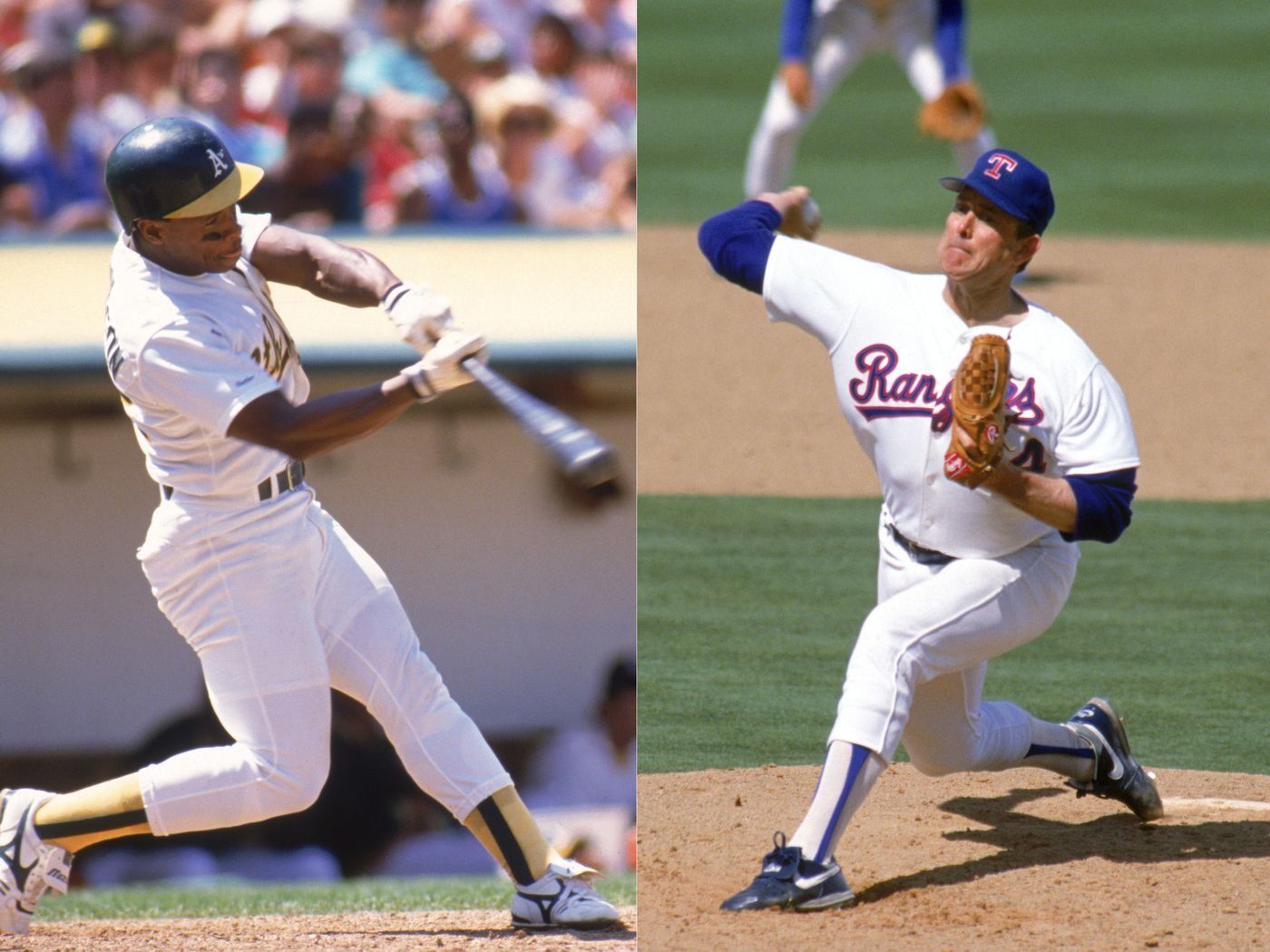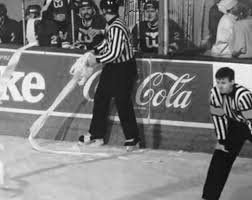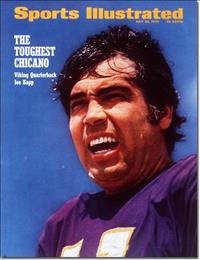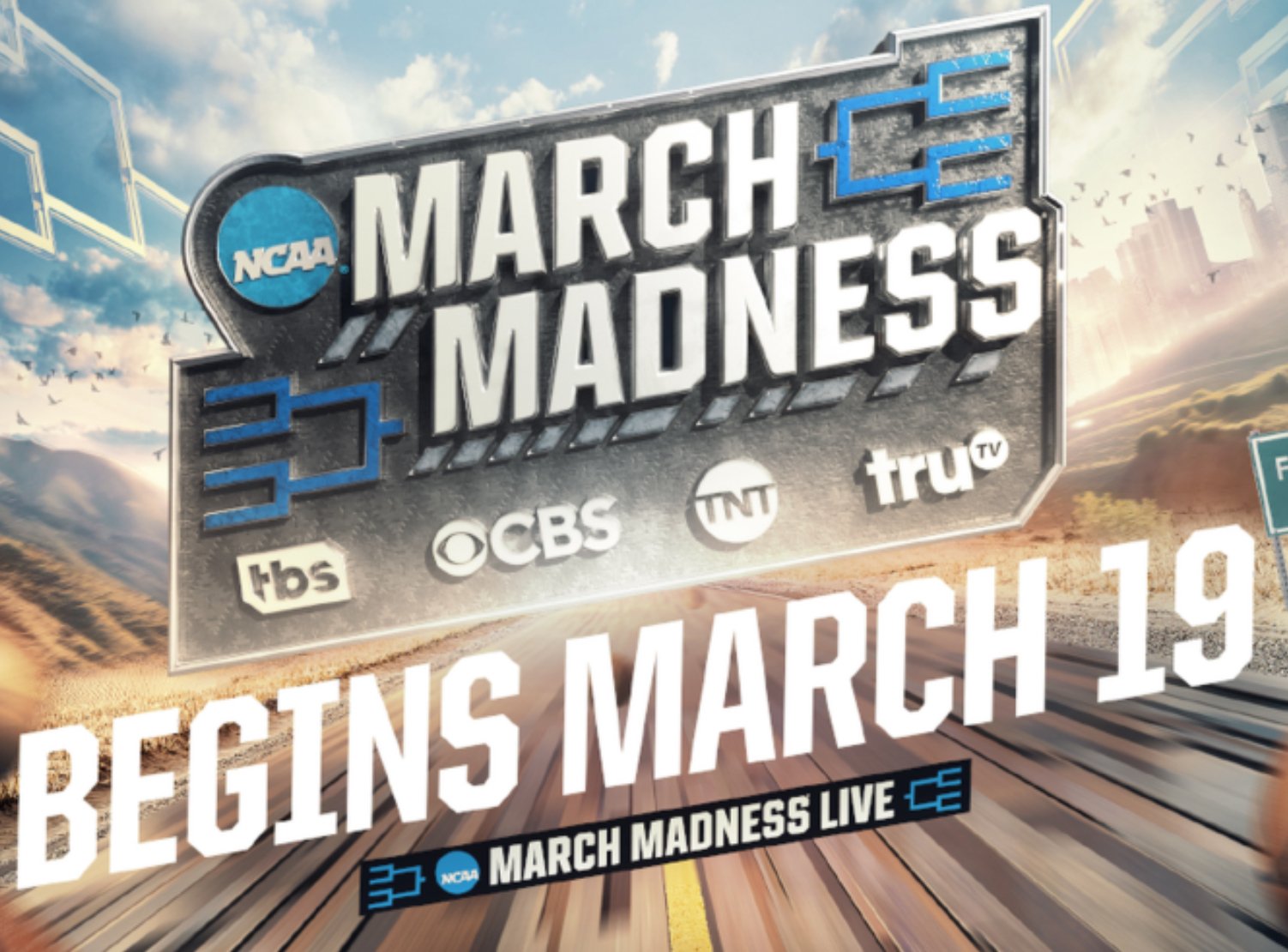The Cincinnati Reds had sewn up their berth in the 1976 World Series with a 7-6 come-from-behind victory over the Philadelphia Phillies in the third game of the NLCS. Johnny Bench was one of the heroes as his home run tied the game in the ninth inning and allowed his team to gather momentum and win the contest and the series soon afterward. It was all reminiscent of a moment in 1972, when his Reds were in a similar situation against the Pittsburgh Pirates.
Back then, almost four years earlier to the day, the series was tied at two games apiece and the Pirates were leading the fifth and final game by a score of 3-2 in the bottom of the ninth in Cincinnati at Riverfront Stadium. The Bucs’ had their best reliever, Dave Giusti, in the game to close it out. The man who would lead things off for the Reds was Johnny Bench.
On that day in 1972, Bench homered and tied the game. Tony Perez then singled to centre field. George Foster came in to run for Perez. Denis Menke singled again, moving Foster to second. That hit by Menke chased Giusti and Pirates’ manager brought Bob Moose into the game to try to get out of the ninth. Moose got Cesar Geronimo to fly out to Roberto Clemente in right, that moved Foster up to third. Darrel Chaney came up next and popped up to Gene Alley at shortstop.
With two out and runners on the corners, Hal McRae stepped up to the plate. But Moose had a pitch get away from him and it skittered to the backstop. That allowed Foster to score the run that gave Cincinnati the game and the series. In both games (1972 and 1976) did Bench hammer the game-tying home run. Back in 1972, his performance in that moment brought out the enthusiastic admiration of his manager, Sparky Anderson.
When the game was over and the two men had a chance to speak to each other away from the ears of outsiders, Anderson told his catcher, “You are the greatest baseball player in the world!” The memory of that situation four years before did come to Bench during the moments preceding his at bat against the Phillies. “There were a lot of similarities between the two situations.”
He was asked, as he was rounding the bases after the most recent homer, if he had thought about the homer off Giusti in ‘72. “I thought about it when I stepped to the plate,” Bench told Gene Caddes of the Paterson (N.J.) News. “Just hope we can score another run. Or now that we’ve got it tied up, who’s going to be our pitcher.”
Bench talked about what the latest win meant to him after he had a chance to process it a little. “When you’re two runs down and hit back-to-backers, that’s quite an accomplishment. I may be a little selfish, but I’m just glad I was a part of it.”
He acknowledged that the four years had taken its toll on his body. “I’m not the same person I was.” Bench said but added a quick proviso. “I do pretty good compared to other people.”
The Reds had the advantage against the Phillies in having been in pressure situations numerous times before. Regardless of whether they faced the Yankees or the Royals in the upcoming World Series, that advantage should be theirs once again. What did that mean to Johnny Bench? “Experience is knowing what it takes to win. Being able to compensate and overcome things which go against you and produce. You’ve got to produce.”
*
The Reds had won their game and their series on Tuesday afternoon. At that moment, the New York Yankees and Kansas City Royals were tied 1-1 in their American League Championship Series. They played the third game that Tuesday evening. The pitching matchup in the game featured Dock Ellis (17-8) for the Yankees against Andy Hassler (5-6). Ellis was going on about ten days rest.
Ellis got off to a rough start. The first batter he faced in the game was Jim Wohlford. Wohlford walked and then stole second. Al Cowens struck out. He scored when the next hitter, George Brett, singled up the middle. Then John Mayberry singled and Brett made it to third. When Hal McRae flied out, scoring Brett, it was 2-0 for the Royals. Then Tom Poquette doubled and scored Mayberry and the night did not look like it would be long for Ellis.
“My problem in the first inning was I hadn’t pitched in a long time, approximately a week and a half,” Ellis told reporters after the game. “I had the ball down, but I was throwing too hard – overthrowing.” That first inning ended with Kansas City leading 3-0. After that Ellis settled down and got some great defense, especially from Graig Nettles at third base, and didn’t give up another run the rest of the way.
Ellis had been experiencing a great 1976 season with the Yankees. It hadn’t been that long ago that he was going through hell as a member of the Pittsburgh Pirates. In 1974, Pirates’ manager Danny Murtaugh wanted Ellis to go to the bullpen, or as Ellis termed it, “the junk pile”. Ellis went but refused to pitch as a reliever and protested by not wearing his hat.
“A lot of people felt I was finished. That was my argument in Pittsburgh. I wasn’t going to the junk pile. No way was I going to the bullpen. I’ve had experience with guys who went to the bullpen and never came out. He (Murtaugh) put me in the bullpen the year before, but I didn’t have a hat on. I never intended to pitch. He lost control of the team that year, but I wasn’t going to be a guinea pig two years in a row.”
On December 11, 1975, in the heat of the winter meetings, The Pirates sent Ellis to the Yankees. In return they got pitcher Doc Medich. Oh, and also going to the Yankees were pitcher Ken Brett and second baseman Willie Randolph. Randolph was just 21 at the time, but he ended up providing an almost immediate benefit to the Yankees.
The Yankees got a pair of runs in the fourth inning and then three more off of five Royals pitchers in the sixth to turn that early 0-3 deficit into a 5-3 win. Ellis ended up going eight innings to earn the victory. He struck out five and walked just two. And for those who still viewed him as a negative, Ellis had some words. “I still don’t think I’m recognized as a pitcher. I still think I’m recognized as a troublemaker. And I’ve learned to accept that.”
The win gave the Yankees a 2-1 lead in the series and the Royals were faced with the task of having to win two in a row in the Bronx to save their season and to try to advance to the World Series against the Reds who were now resting and waiting and watching these two slug it out for right to face them.
*
At the start of the 1976 National League Championship Series, it was fortunate that a couple of former Montreal Expos were able to share a brief moment of levity. Bob Bailey had joined the Reds over the previous winter after asking Montreal’s general manager John McHale if he could be traded. Bailey had been with the Expos from their inception in 1969 and felt that his playing time with the team might be diminishing.
“It didn’t look like I was going to play (with the Expos), so I asked,” Bailey told the Montreal Star’s Alan Richman just before the series. “As it turned out, the way the season went, I probably would have played, but that’s beside the point. I always had a good rapport with McHale and Fanning and I’m lucky they decided to send me some place like this.”
“Some place like this” was a team that was playing games for real, playing in the postseason. As the series began, Bailey was a few days away from his 34th birthday and he was aware that he was in the twilight of his career. On this Reds team, he was the 23rd or 24th or 25th man and he knew it. He also knew his role was to be a pinch hitter and a bench guy.
In the third game of the NLCS, Sparky Anderson did tell him to pick up a bat but eventually, he didn’t get to swing it at any Philadelphia pitches. “I would like to play more,” Bailey told Richman. “When I did play this season, I hit almost .300 (.298 with six home runs and 23 runs batted in in 124 at bats), and I hit .370 as a pinch hitter. I can still play, but if I have to play part-time, this is the best club to do it. I must admit this chance to be in the playoffs and in the World Series is really nice.”
Bailey had been one of the proverbial ‘bonus-babies’ of the early 1960s. He signed with the Pittsburgh Pirates in 1961 for the reported amount of $135,000. But his production with the Pirates never really matched the money the team spent on him and in December of 1966, they traded Bailey and Gene Michael to the Los Angeles Dodgers for Maury Wills. He spent two disappointing seasons there before being purchased by the expansion Expos after the 1968 campaign.
While in Montreal, Bailey revived his career. In 1970, he hammered 28 homers and drove in 84 runs. He batted a very respectable .287 as well. In 1973, playing more regularly, he knocked out 26 bombs and knocked in 86 runs. He followed that in 1974 with 20 round-trippers and 73 RBIs. His .280 batting average was decent as well. But in 1975, his playing time fell off and, with younger players coming along, that was when he decided to ask out of La Belle Province.
And there was a moment before the first game of the 1976 NLCS when Bailey was sitting in the dugout relaxing and an old teammate came over to say hello. Bobby Wine was a shortstop with the Expos from 1969 until his final season in 1972. Their careers overlapped in Montreal and by 1976, Wine was a coach with the Phillies, the team with which he had spent most of his playing career starting in 1960.
Wine saw his old teammate reclining in the dugout and sauntered over to the top step. He had a goofy look on his face, and he cracked toward Bailey, “I hear Dick Williams is trying to get you back in Montreal!” Bailey looked up at Wine with a puzzled look and he said, “You don’t think, do you?” Then he realized what Wine was doing and he laughed heartily.
The baseball community…….
*
There was some news that came out of Philadelphia pretty much immediately following the NLCS. Danny Ozark would be back to manage the Phillies in 1977, but first baseman Dick Allen would not. Paul Owens was the Phils’ personnel director and he talked about his manager after his team was swept by the Reds. “There is no way he is not coming back to manage this ball club,” Owens told reporters. Allen was an impending free agent and Owens said he would not make an offer to the first baseman for 1977.
Ozark led the team to another 101-win season and a postseason berth in that 1977 season. His Phils were defeated in the NLCS though. That would be the last time that the team would play beyond the end of the regular season with Ozark at the helm. He would manage the team into the 1979 schedule and would be gone about three-quarters of the way in. The Phils record was 65-67 at the time.
Dick Allen became a free agent a few weeks after the Phillies year was over. The offseason passed by without any significant offers for the first baseman. Spring training began and he still hadn’t signed with any team. Finally on March 16, eight days after his 35th birthday, he agreed to terms with the Oakland Athletics. He played 54 games with the A’s in 1977, hitting five homers and driving in 31 runs. He batted .240. It was his last season in major league baseball.
*
The Battle for The Junior Circuit between the Yankees and Royals was beginning to look like one of the Friday Night Fights that Fred Flintstone and Barney Rubble would watch in Bedrock back in the day. Surely you remember the bouts between two men with clubs. Each man would take a turn hitting the other man over the head with a club and they would go back and forth exchanging wallops, one after the other until there was a winner. In the ALCS, the Yankees won the first game, the Royals won the second, then the Yankees and then the Royals.
In the fourth game, Royals manager Whitey Herzog changed his lineup around and moved a few guys in and a couple more out. The result was a 7-4 Kansas City victory. Hal McRae, usually the team’s designated hitter was put into a defensive position in right field. He had been slumping but came up with a couple of hits and a pair of runs scored. Rookie Jamie Quirk was put into the order as the DH, and he responded with two RBIs and a run scored. 5-foot-4-inch shortstop Freddie Patek had three hits and three RBIs.
Perhaps most importantly, the Royals defeated one of the Yankees’ best pitchers in Jim “Catfish” Hunter. Hunter lasted just three innings in the loss. Kansas City never trailed in this contest, and it pushed the series to a decisive fifth game on Thursday night, October 14. Ed Figueroa would be the Yankees’ pitcher. He took the loss in the second game of the series. Herzog was indecisive as to who would be his starting pitcher in the fifth matchup.
Yankees’ manager Billy Martin went with Figueroa over another pitcher on his staff. Ken Holtzman had plenty of World Series experience from his years with the Oakland A’s. When Herzog heard that the Yanks would forego Holtzman, he may have felt a pang of jealousy. He was looking at choosing one pitcher from a group on his staff and he seemed to be having a difficult time.
“I have no idea right now. I have a choice of four – Dennis Leonard, Marty Pattin, Al Fitzmorris and Paul Splittorff. If I had Holtzman, I’d pitch him.” That option was not available to the Royals’ manager, so he had to choose between his own pitchers. Like Figueroa, Leonard started the second game of the series but got into the third inning before being pulled.
That said, Leonard did win 17 games in 1976 and Herzog acknowledged that his pitcher did have a decent upside. “He’s a power pitcher and if he throws strikes, he can give them trouble.” Of the others, Pattin had faced just one hitter in the series to this point and issued an intentional walk. Splittorff was great pitching 5 2/3 innings in relief of Leonard in the second game and he’d be the likely starter in Game Five if he hadn’t been up and throwing for a lot of the fourth game the night before.
Fitzmorris was the only one of the four who had not seen any action in the series yet. At this point, he joked about his situation and what it might feel like if he was called upon. “If I pitched, I’d feel strange. I think my bid was turned down,” Fitzmorris quipped. Another choice that was not available might have been Steve Busby. Busby had won 40 games for the Royals over the previous two seasons but had not pitched since June due to a shoulder injury.
The pitcher that Herzog ended up going with as his starter was Dennis Leonard and the hope was that he’d be able to go longer than he had a few days earlier. It was tough though because this game seemed to get away from both pitchers and both managers somewhat early.
The game was played at Yankee Stadium, so the Royals, of course, batted first. With Figueroa on the mound for the Yankees, he got Al Cowens to ground out to Willie Randolph at second and he struck out Tom Poquette. But George Brett then doubled and future Toronto Blue Jay, John Mayberry, homered to give Kansas City and Leonard a quick 2-0 lead. But Leonard would not hold that lead for long.
Mickey Rivers led things off for the Yankees in a big way in the bottom of the first inning when he got the first of his four hits on the day, a triple to left-centre field. Roy White then singled to bring Rivers home. With Thurman Munson up, White read Leonard’s delivery and quickly stole second base. After Munson singled to left, White advanced to third while Munson moved up to second on Poquette’s throw trying to get the lead runner.
Leonard’s day was over then and there. He gave way to Paul Splittorff. Splittorff got Chris Chambliss to hit a fly ball to Poquette in left. It was deep enough to bring White home and the game was tied just that quickly. Splittorff was able to retire Carlos May and Graig Nettles as well to end the threat, but the early lead the Royals grabbed in the top of the first was now squandered.
They did manage to get another lead back, albeit slim, in the top of the second inning. With one out, Cookie Rojas got a single off Figueroa and then stole second. Freddie Patek went down on strikes and with two out, catcher Buck Martinez stroked a single to right, one of his three hits on the day, to score Rojas. Splittorff was gifted a lead.
He held the Yanks off the scoreboard in the bottom of the second, but in the third, they struck again. Rivers led the inning off with a single. White followed that by working the Royals reliever for a walk. Munson then singled to score Rivers and move White to third. Chris Chambliss then grounded out to Rojas at second which scored White and New York held the lead for the first time in the game.
In the fourth, Splittorff loaded the bases with Yankees with two out and Herzog decided that he was finished with him. He brought Marty Pattin in. He retired Munson to end the uprising and the score after four was still 4-3 for the club from the Bronx. It stayed that way into the bottom of the sixth.
Andy Hassler had replaced Pattin in the fifth. In the sixth, Rivers started things off with a single. White bunted to move the speedster up to second. Munson then singled to bring Rivers home and the lead was now 5-3 for the New Yorkers. Munson was gunned out at second trying to nab that extra base. But then Chambliss singled and managed to steal second. Carlos May hit a grounder to Brett at third that he couldn’t handle. May was aboard and Chambliss scored, and the Yanks now led 6-3.
It would stay that way through the seventh. In the eighth, it was Kansas City’s turn to erupt. Figueroa was still in the game as the eighth inning began. But the Royals’ first hitter in the inning would be his last. Al Cowens stepped in to face Figueroa and he delivered a lead-off single. Billy Martin had seen enough, and he brought Grant Jackson in to face Jim Wohlford.
“Figueroa was just out of gas,” Martin explained to reporters after the game. “We had hoped for five innings from him tonight and he gave us more.” Wohlford singled to move Cowens up to second. That brought Brett to the plate. Brett atoned for his earlier defensive miscue by hammering a Jackson pitch into the lower deck in right field, and just like that, the game was tied at 6-6. Jackson retired the next three Kansas City hitters, but the damage was done.
Mark Littell came out in the bottom of the eighth for the Royals and retired Rivers, White and Munson and he gave his team a chance to regain the lead in the top of the ninth. Martin brought the man they called “Dirt” to get the Royals out in the ninth. Dick Tidrow would be facing the bottom third of the lineup in Rojas, Patek and Martinez. He got the first two, but Martinez was proving to be quite the pesky rascal.
He had singled in the second and he singled again in the fifth. He came up with two out in the seventh, but Figueroa induced him to hit a fly ball to left, that Roy White caught for the final out of that inning. In the top of the ninth, Martinez managed another hit, a single to left that kept the inning alive. That brought the leadoff man, Al Cowens up. He earned a walk.
Jim Wohlford came up again. He hit a slow roller to the left side of the infield. Third baseman Graig Nettles came charging in for it. He scooped it up and fired it over to second to try to get the force on Cowens. Joe Brinkman was the umpire. He called Cowens out. Television replays showed that Cowens looked safe. Herzog didn’t come out to argue, however. The inning ended with Brett on deck and possibly able to deliver a game-winning hit. He never got the chance.
In the next half-inning, the game would end quickly. Littell was set to face the middle third of the Yankees order. The first man up was Chris Chambliss. He swung mightily on the first offering from the Royals reliever. The ball soared toward right-centre field. Into the alley, the ball cleared the fence close to the 385-foot sign and landed just in front of the bleachers.
Chambliss stood for a brief second after he had made contact and watched the ball fly. Once he lost sight of the ball beyond the fence, he raised his arms and then he began to circle the bases. As he did, fans poured on to the field, just as they had done when the Mets had won the National League pennants in 1969 and 1973. They made Chambliss’ trek around the infield difficult. He finally made it to the dugout and into the clubhouse.
Once there, the first person he saw was Ed Figueroa and the two men hugged a winner’s hug. A second after that, coach Elston Howard came and grabbed Chambliss. In the frenzied atmosphere that was the field at Yankee Stadium moments before, he hadn’t touched home plate. There were police officers there to escort him back out to the field to allow him to try to touch home plate.
While Chambliss was fighting his way to the plate (and possibly hoping it might still be there with everyone tearing apart the ground in search of a souvenir, even if it was just some dirt), the clubhouse was quickly becoming awash with beer and champagne. In the midst of all the bubbles, Billy Martin was praising his team and thinking back to Yankee championships of the past.
He compared his team to the teams of the 1950s that Casey Stengel managed. Those teams won ten American League pennants and seven World Series over a 12-year period. Stengel had passed away in September of 1975 and the Yankees had worn black arm bands for the entire 1976 campaign in his memory. They dedicated the season to Stengel and his life in baseball.
“Wouldn’t Casey be happy?” Martin asked rhetorically. “I’d love for him to be here. I guess he’s smiling somewhere in the sky.” Someone asked Martin about the Cincinnati Reds, who had been home and watching this series, waiting for some fresh meat……errrr……..a new opponent. Martin was his usual confident self.
“The Reds are beatable. We have five or six hitters who can rip the ball. Their pitching is light. I think our pitching is better than theirs and it’s over the hump now and will do a better job in the World Series.” Martin was not exactly certain about who his starting pitcher would be for the first game on Saturday in Cincinnati. The speculation among reporters was that it would be Dock Ellis or Ken Holtzman. “Catfish Hunter will probably go in Game Two,” Martin said.
As much as Billy Martin liked his team’s chances in their upcoming series against Cincinnati, there were many who felt the Reds were the better team. I doubt there were many though, who were as pointed in their feeling that the Yankees were overrated as columnist Bill Carter of the Alexandria (La.) Town Talk. The Yankees had not been to a World Series since 1964, but their legend was bigger than their present identity.
“The Yankee legend was built by teams with outstanding defense and pitching. The long ball was for show,” Carter wrote in his editorial in the paper from Friday, October 15, the day before the series opened. “This Yankee team has a bit of power, and pretty fair overall hitting. But it is surely the poorest defensive outfield ever to appear in a World Series, and unless Catfish Hunter can start pitching like he did for Oakland…the pitching will be average at best, possibly not that good.”
Carter continued, “There’s nothing wrong defensively with the Yankee infield. But the Reds usually hit the ball to the outfield. And the Reds just might make a joke of the World Series, by running at will while the Yankee outfielders are looping the ball all over the park.” He didn’t think much of the Royals either, who won the AL West with just 90 wins. “How can the Yankees compete against a team like the Reds when they had to go five games, five full games, to beat a team like the Royals?”
“Philadelphia is considerably stronger than either Kansas City or the Yankees and the Reds whipped them in three straight games. If the Yankee pitchers can be belted around like that by a popcorn team like the Royals, how can they face up to baseball’s best-hitting team since the Yankees built their legend?”
Carter gave everyone a sense of what they might be in store for in the upcoming World Series. “Next week, the Reds might break all scoring records by mixing their hitting with the Yankee pitching and the weak, weak Yankee outfield.”
Okay. Enough with the sugar coating. The World Series is a-near. Let’s get it on!
* * *
Howie’s new book MORE Crazy Days & Wild Nights, eleven new stories of outlandish and wild events that occurred in sports over the last fifty years,is available on Amazon. It’s the follow-up to his first book of 2023, Crazy Days & Wild Nights! If you love sports and sports history, you need these books!
You can hear Howie and his co-host Shawn Lavigne talk sports history on The Sports Lunatics Show, a podcast, at thesportslunatics.com. Also, check out all their amazing content at thesportslunatics.com and listen to their show on Apple Podcasts, Spotify, iHeart Radio, TuneIn Radio and Google Podcasts and at firedupnetwork.ca on 212 different platforms. Check out The Sports Lunatics Show on YouTube too! Please like and subscribe so others can find us more easily after you.
The Sports Lunatics Show can now be heard on Sundays at noon on CKDJ 107.9FM in Ottawa or online at ckdj.net .

